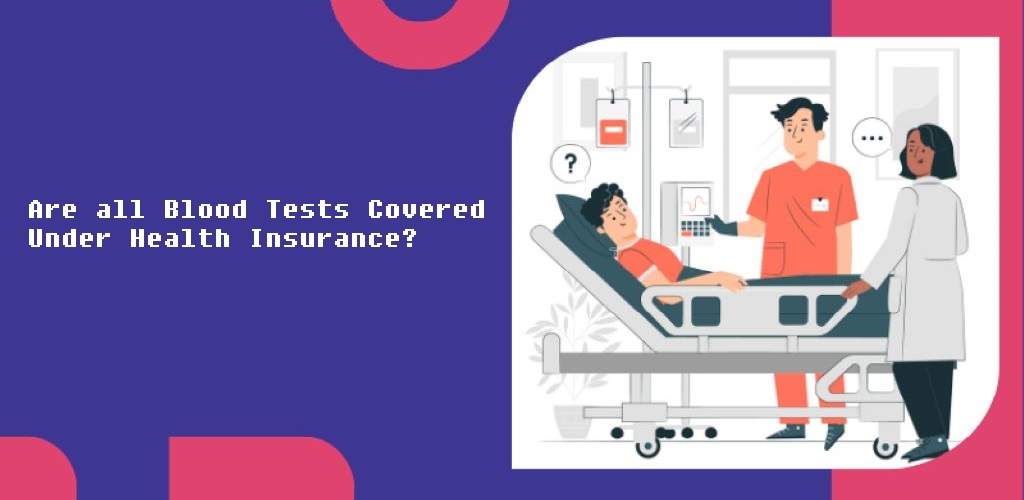Life is full of uncertainties and sometimes, bad things can happen that can affect our lives, health, and even personal belongings. That’s why health insurance exists to protect us from these unexpected events. It’s like a safety net that we can rely on when things go wrong. Remember that health insurance not only provides financial support in times of need but also helps us save money and creates job opportunities for many people.
Now, let’s imagine a real-life situation in India that involves a hospital and a patient. Suppose a 32-year-old Software Engineer named Mr Satish Kaushik met an accident on the road where he was immediately taken to the hospital. If the accident is not so serious, the hospital will discharge him in a day or two. But, on the other hand, if the hospital is keeping him in a deluxe room and using unnecessary expensive consumables like dressings, slippers, and more and they charge him extra even after passing the claim, then it’s termed as “Health Insurance Fraud”.
In India, some hospitals engage in fraudulent activities regarding health insurance. While insurance is meant to protect us, it’s essential to be cautious and aware of the risk. In this post, we’ll discuss the meaning of health insurance fraud, how to prevent it, and some other important tips.
Understanding Health Insurance Fraud: What is It?
To put it simply, medical fraud or health insurance fraud occurs when someone (either hospital or policyholder) intentionally carries out a plan to provide unnecessary or excessive medical services. It may include treatments that are not medically necessary or the overuse of services which may result in unnecessary costs for the healthcare system and insurance providers.
Remember that the individuals involved in medical insurance can be patients, doctors, hospitals, suppliers, vendors, or pharmacists. Furthermore, it won’t be wrong to say that the consequences of health insurance fraud are significant. It increases the healthcare costs which can eventually affect individuals and employers through higher insurance premiums. Moreover, if a hospital or a healthcare provider encourages a patient to undergo unnecessary tests or treatments, it can put the patient’s health at risk. Thus, combating medical insurance fraud is important to protect the integrity of the healthcare system, keep costs under control, and facilitate overall patient well-being.
Proven Ways in Which Hospitals Misuse a Patient’s Health Insurance
It is hard to say, but yes, there are instances where hospitals misuse a patient’s health insurance, and it’s important to discuss such practices. Let’s take a quick look at the ways in which hospitals may take advantage of a patient’s health insurance coverage.
- Overbilling
One common method is overbilling, where hospitals or healthcare providers charge more for services or procedures than is reasonable. This, in turn, leads to increased medical bills that can surpass the actual cost of the treatment provided.
- Overcharging on Medicines
Another way hospitals may misuse health insurance is by overcharging for medicines that are not even required during hospitalization. They mark the price of the respective medicines and drugs significantly higher than the higher cost, which may lead to inflated expenses for patients and insurance providers.
- Unnecessary Treatments
Sometimes, hospitals recommend or perform unnecessary treatments or procedures solely to increase billing and claim high reimbursements from health insurance. This not only exposes patients to unnecessary risks but also drives up healthcare costs.
- Expensive Consumables
Lastly, hospitals may use expensive or unnecessary medical consumables like dressings, supplies, or any disposable items. This, in turn, can result in higher charges for patients and insurance providers without providing any benefit in terms of patient care.
How to Prevent Health Insurance Fraud?
Here is a list of the ways to prevent health insurance fraud. Let’s discuss them in detail!
- Always Verify the Insurance Provider
One of the first ways to prevent such kind of fraud is to always check the legitimacy of the insurance provider. Ensure you don’t trust callers who try to convince you to switch your current insurance for a supposedly better one. Be cautious of promises that sound too good to be true. To confirm the details of an insurance policy, you should contact the insurer directly using the official contact information.
- Protect Sensitive Information
Another major way to protect health insurance fraud is to never share personal and sensitive information like Aadhar, Passport, PAN, or OTP with third parties or strangers. Remember that legitimate insurance providers don’t ask for such things and most importantly, they will never keep your original documents. Ensure you avoid signing blank cheques or giving out private information about your file or insurance policies. Don’t share One-Time Passwords (OTPs), account logins, or passwords with insurance representatives or agents.
- Don’t Make Cash Payments
If you want to pay the premium for your health insurance, don’t do it in cash. Even if you do, make sure you pay the amount directly at any of their branches. Furthermore, you can opt for cheques and online payments like GPay, PhonePe, Paytm, and more. Once you are done with the payment, ensure you always ask for valid receipts for every premium you pay.
- Review Policy Documents
When purchasing insurance offline, carefully fill out the policy documents yourself. If an agent is assisting you, read and understand the terms and conditions, inclusions and exclusions, and check for any errors or missing information. Take the time to thoroughly read the policy before signing them.
- Always Make Online Purchases
Last but not least, if you prefer, you can buy health insurance online which can reduce the risk of fraud and eliminate dealing with the agent. This, in turn, allows for a direct and secure transaction. Ensure you follow the payment instructions carefully and protect your credit card information.
Conclusion
This article concludes with the steps that insurance companies and policyholders can take to prevent and detect insurance fraud. It is no secret that insurance fraud is a significant problem in India, which may lead to substantial financial loss for both insurance providers and policyholders. It’s important to create transparency and fairness in the insurance sector and protect themselves from unnecessary troubles and financial burdens associated with fraudulent activities.








